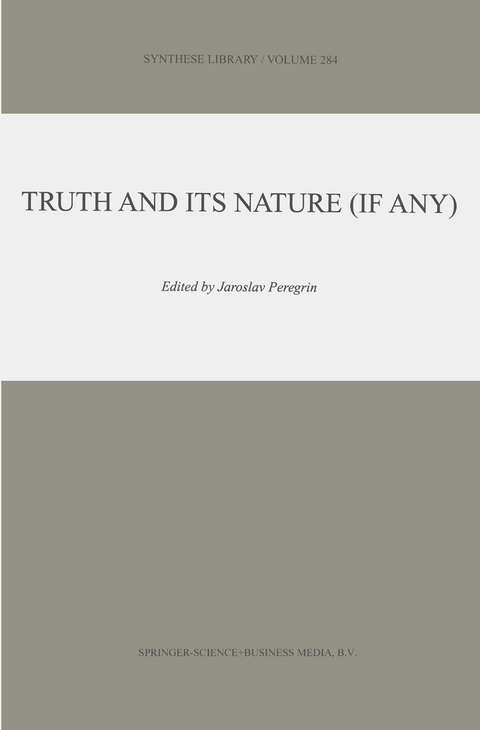
Truth and Its Nature (if Any)
Springer (Verlag)
978-90-481-5280-3 (ISBN)
I. Past Masters on Truth.- Frege: Assertion, Truth and Meaning.- Carnap, Syntax, and Truth.- James’s Conception of Truth.- II. Tarski and Correspondence.- Semantic Conception of Truth as a Philosophical Theory.- Truth, Correspondence, Satisfaction.- Do We Need Correspondence Truth?.- Tarskian Truth as Correspondence — Replies to Some Objections.- III. The Substantiality of Truth.- The Centrality of Truth.- Mapping the Structure of Truth: Davidson Contra Rorty.- The Explanatory Value of Truth Theoriesembodying the Semantic Conception.- Negative Truth and Knowledge.- IV. The Insubstantiality of Truth: The Pros and Cons of Deflationism.- Deflationary Truth, Aboutness and Meaning.- The Substance of Deflation.- Does the Strategy of Austerity Work?.- Rethinking the Concept of Truth: A Critique of Deflationism.
| Erscheint lt. Verlag | 15.12.2010 |
|---|---|
| Reihe/Serie | Synthese Library ; 284 |
| Zusatzinfo | XVIII, 221 p. |
| Verlagsort | Dordrecht |
| Sprache | englisch |
| Maße | 155 x 235 mm |
| Themenwelt | Geisteswissenschaften ► Philosophie ► Erkenntnistheorie / Wissenschaftstheorie |
| Geisteswissenschaften ► Philosophie ► Geschichte der Philosophie | |
| Geisteswissenschaften ► Philosophie ► Logik | |
| Geisteswissenschaften ► Philosophie ► Philosophie der Neuzeit | |
| Geisteswissenschaften ► Philosophie ► Sprachphilosophie | |
| Geisteswissenschaften ► Sprach- / Literaturwissenschaft ► Sprachwissenschaft | |
| ISBN-10 | 90-481-5280-1 / 9048152801 |
| ISBN-13 | 978-90-481-5280-3 / 9789048152803 |
| Zustand | Neuware |
| Haben Sie eine Frage zum Produkt? |
aus dem Bereich


